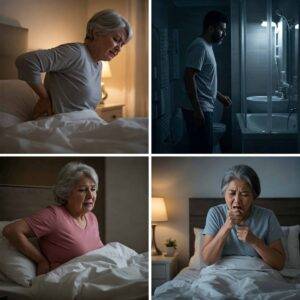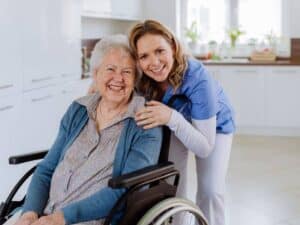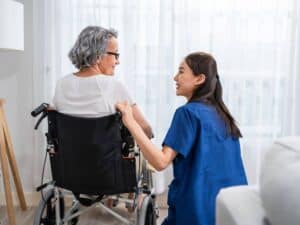Celebrated American pianist Lucien Leinfelder was diagnosed with Parkinson’s disease (PD) when he was 60. But, despite being told he wouldn’t be able to play again, he kept sharing his interpreter gifts with the world for more than 20 years.
In fact, some of his favorite audiences were the patients, medical staff, and visitors at the Texas Health Presbyterian Hospital in Dallas, where he would play every week after receiving treatment for his PD.
Sonya Manibusan, manager of volunteer services at Texas Health Dallas, would say: “His music healed those who were sick in body, mind, and spirit, patients and guests alike.”
One of the main factors that kept Lucien motivated to keep practicing and battling his disease was the care and support of his family.
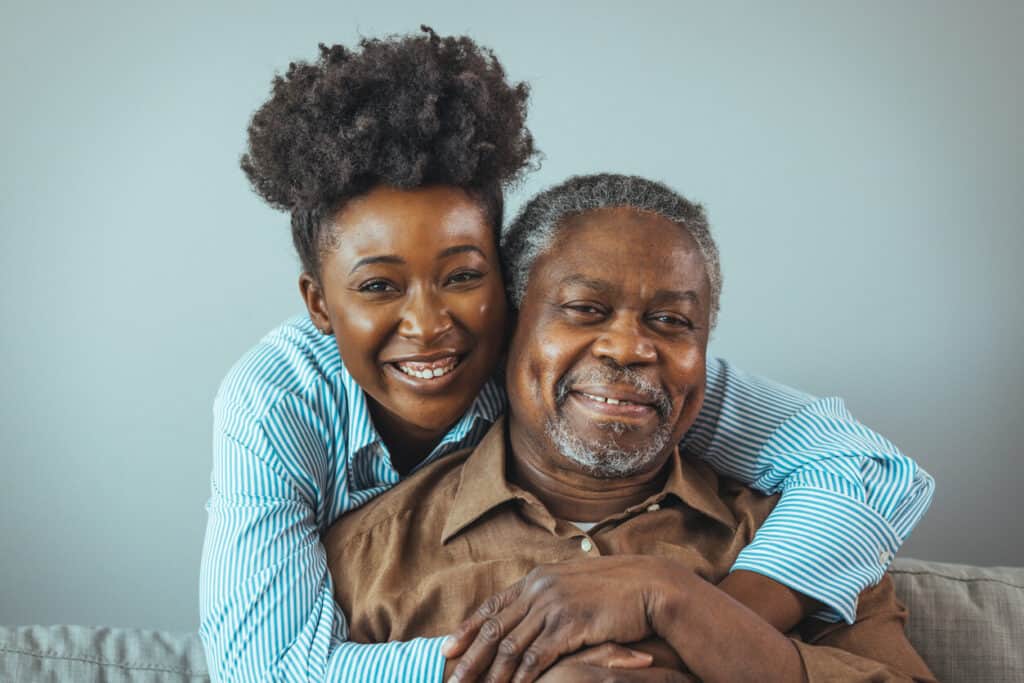
Aging can be a challenging process in itself, and this is truer for a senior with Parkinson’s disease. But the care and support of you and your loved one’s closest relatives and friends can make an enormous difference.
But how can you help your senior with Parkinson’s disease have a good quality of life and hinder their physical and cognitive decay? We have three effective ways to do so.
Create a Safe and Functional Environment for Your Loved One
In home Parkinsons care is becoming increasingly important as the number of people living with Parkinson’s disease continues to rise. Fortunately, families and caregivers can find a range of resources and specialized care services that support both a patient’s physical and emotional needs.
Parkinson’s disease often comes with mobility and balance issues that may increase the risk of falls and injuries. As a matter of fact, seniors with Parkinson’s disease are three times more likely to fall than their counterparts without PD.
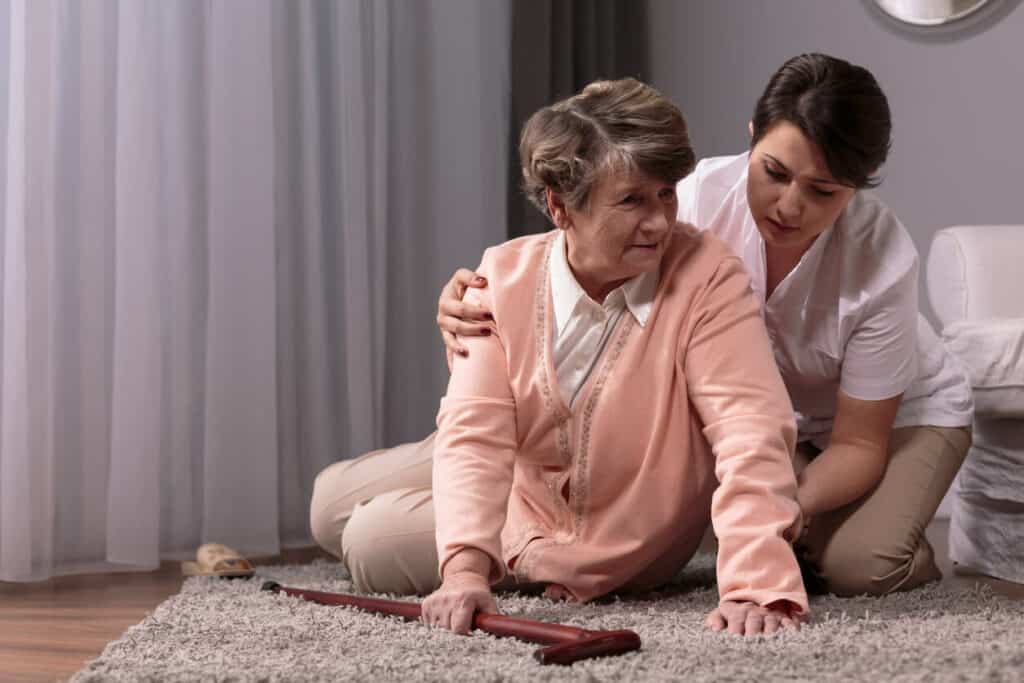
On top of it, there are other accidents people with this illness often have, like burns, bumps, or hits by falling objects in the house.
Therefore, it’s important to take measures to create a safe and functional living environment for your loved one to prevent accidents. These are a few ways you can do so.
Eliminate Slipping and Falling Opportunities
Seniors with Parkinson’s disease tend to experience balance and mobility issues, which makes them more prone to slip or fall.
We recommend you do your best to provide your loved one with a firm ground to move around the entire house.
- Install non-slip flooring in areas where your senior with Parkinson’s disease may spend a lot of time, such as the kitchen, bathroom, and hallways. Avoid using high-gloss finishes that may be slippery.
- Remove loose carpets, rugs, electrical cords, and any clutter that may cause tripping.
- Ensure that the floor is clean, dry, and free from any debris.
Provide Mobility Aids for Your Senior
Parkinson’s disease can cause muscle weakness, balance problems, and coordination issues, making your loved one more susceptible to falls.
Installing mobility aids can help prevent falls and consequent injuries.
- Install handrails on both sides of staircases and in bathrooms to give your senior support when moving around the home. You can also install grab bars in the shower or bathtub.
- Use nonskid mats and rugs to prevent slips and falls.
- Provide your loved one with mobility aids like canes, walkers, or wheelchairs to help your senior move around the house safely.
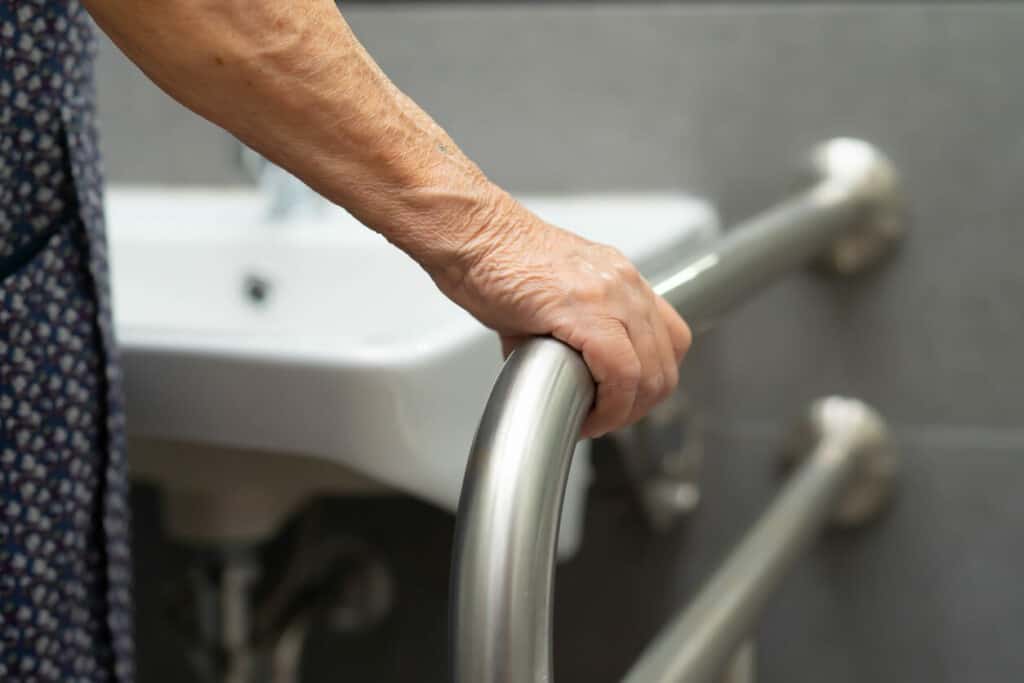
Accommodate the Space to Your Senior’s Needs
Parkinson’s disease can cause muscle stiffness and difficulty with balance, making it challenging for your loved one to sit, stand up and move in narrow spaces.
- Use raised toilet seats to make it easier for your senior to sit and stand up from the toilet independently. Consider using toilet safety rails to provide additional support.
- Rearrange the furniture in the home to make it easier for your loved one to navigate around the room. Consider making wide pathways, and avoid placing furniture near doorways or high-traffic areas.
- Clear pathways in rooms and hallways to make ample space for your loved one to move, especially if they use mobility aids like canes, walkers, rollators, or wheelchairs.
- Organize cabinets, drawers, and other storage spaces to make it easier for your loved one to reach items without straining or climbing.
Lit Your Loved One’s Home Adequately
Seniors with Parkinson’s disease may have vision problems or difficulty seeing in low-light conditions.
Proper lighting can help your elderly loved one navigate the home safely, avoiding obstacles and hazards.
- Ensure that all areas of the home have enough lighting to prevent shadows and glare.
- Use bright lights, night lights, and motion sensor lights.
- Use light switches that are easy to operate.
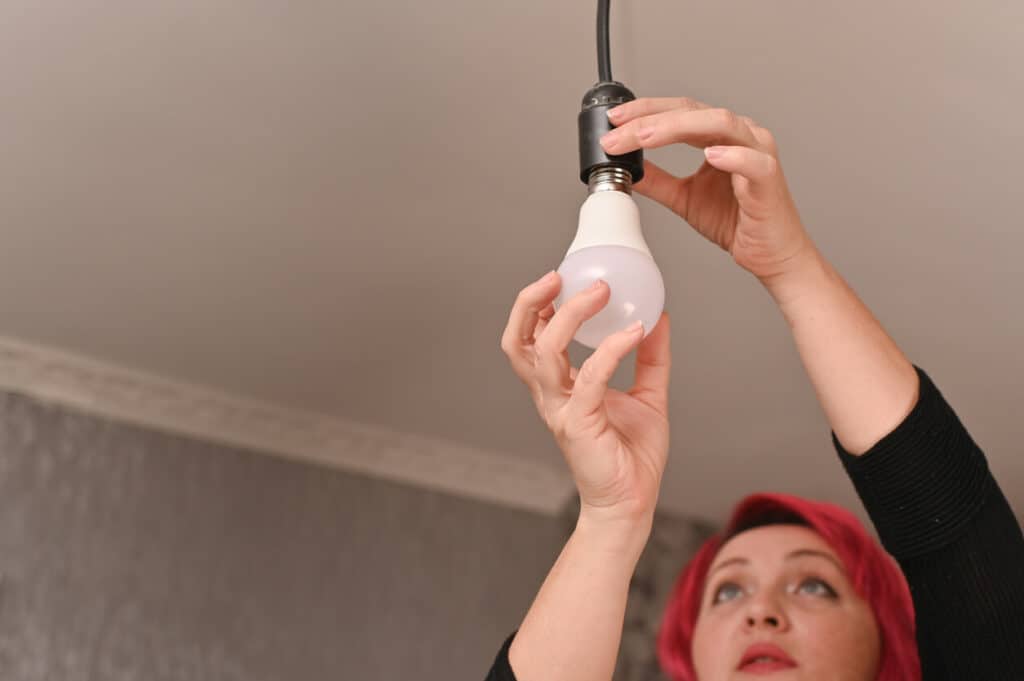
Optimize the Temperature in Your Loved One’s Home
Parkinson’s disease can affect the body’s ability to regulate temperature, which could make your senior more vulnerable to overheating or hypothermia.
Maintaining an adequate temperature in the home can help prevent these issues.
- Ensure that the temperature in the home is at a comfortable level, and use space heaters and fans when necessary.
- Avoid using heating pads or electric blankets that may cause burns or overheating.
Help Your Senior Stay Active
Staying mentally and physically active can significantly improve your senior’s quality of life and manage the symptoms of Parkinson’s disease.
Engaging in regular physical activity can help improve muscle strength and flexibility, making it easier for seniors to move around and perform daily activities.
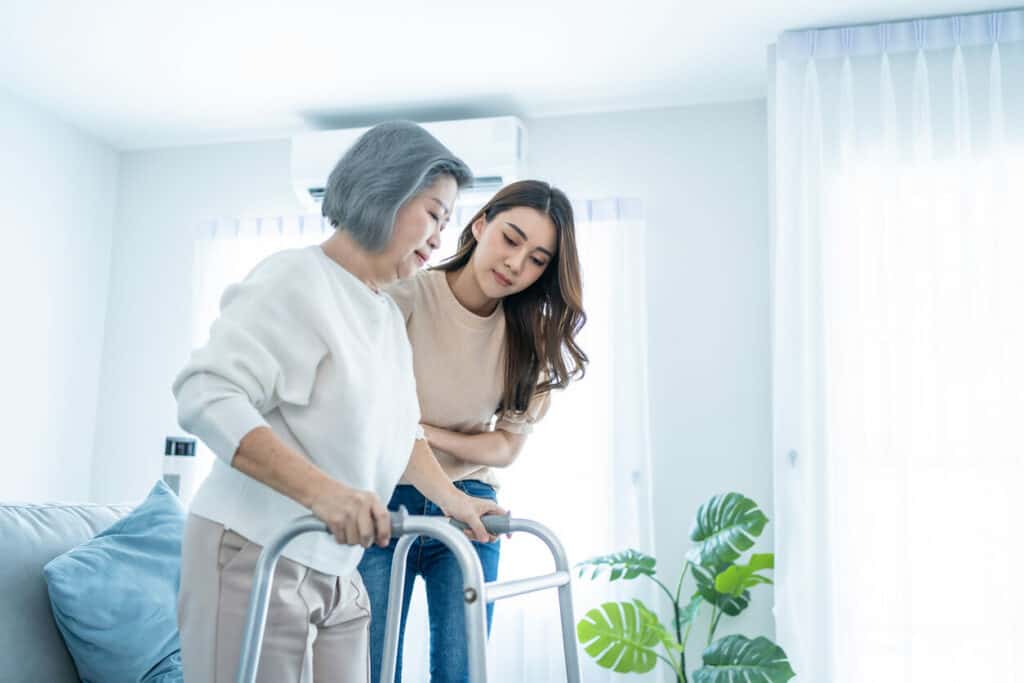
On the other hand, mental activity can help slow down cognitive decline and maintain intellectual abilities.
That’s why we recommend you encourage your loved one to stay active and engage in activities that stretch his physical and mental muscles.
- Motivate your senior to cultivate new and old hobbies, such as cooking, knitting, or painting, and assist them in practicing them in a safe manner.
- Encourage your senior to do as much physical activity as possible. You may take walks with them or choose an exercise routine that both can practice together.
- Spend time reading, doing puzzles, or playing board games with your loved one.
If you decide to provide care for a loved one by yourself, there are many locations where caregiving and nursing training are organized within the community. You may find care training programs focused on providing care and support for those living with Parkinson’s disease, and related progressive conditions with shared Parkinson’s symptoms, like Alzheimer’s and dementia.
It is crucial for families to understand the benefits of proper care for those with Parkinson’s disease. They can expand their understanding of the disease by reading blogs and news content.
Make Personal Care Easy for Your Loved One
Reduced mobility and tremors associated with Parkinson’s disease, as well as the cognitive decay that comes with the condition, can make it difficult for your senior, at some point, to do basic self-care tasks, such as bathing, dressing, or grooming.
Having difficulties performing such fundamental tasks can take a toll on your loved one’s emotional well-being, which can lead them to develop other problems, such as anxiety and depression.
This is why it’s crucial that you do your best to help your beloved senior keep taking care of themselves and feel independent and capable enough.
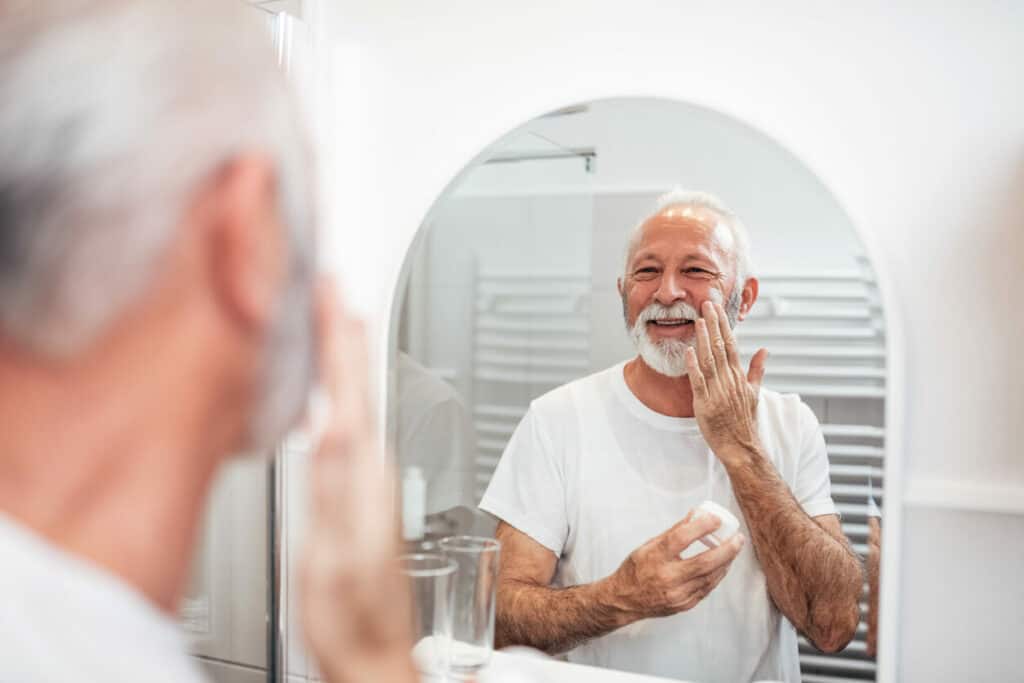
To that end, these are a couple of things you can do to help your loved one bathe, dress, and groom.
Bathing
- Install a shower chair or bath bench to provide a stable and secure place for your senior to sit while bathing.
- Acquire a handheld showerhead or a pitcher to pour water over your senior loved one’s body if you help them bathe or to allow them to soak and rinse themselves.
- Ensure that the water temperature is not too hot or too cold, and optimize your loved one’s home water installation to adjust water temperature easily.
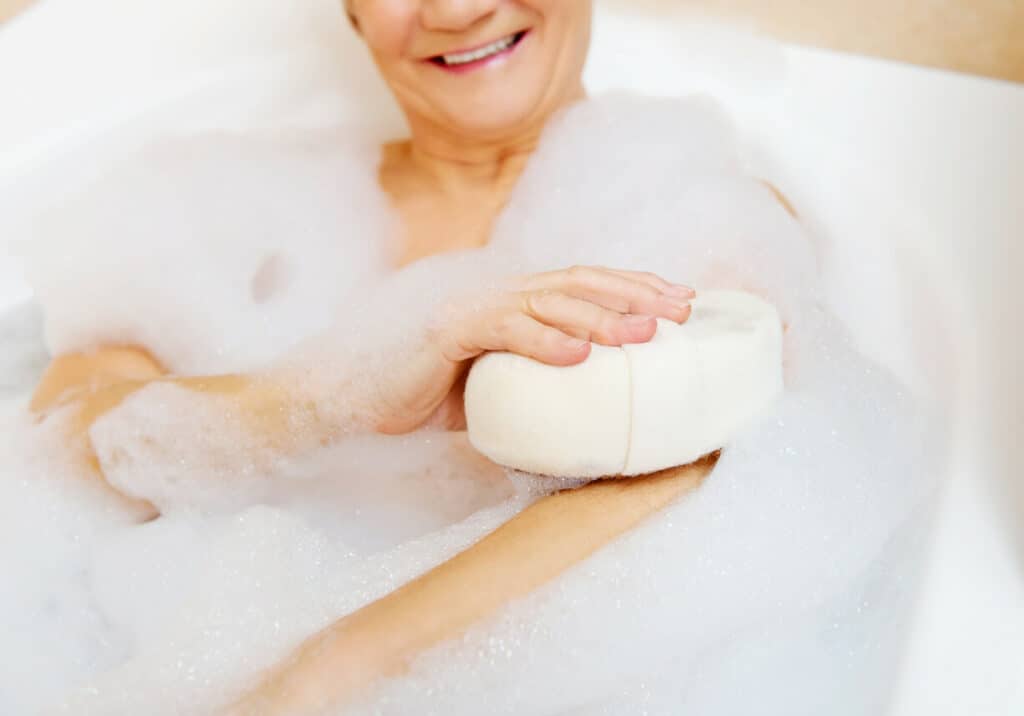
Grooming
- Provide your senior with grooming tools appropriate for their condition, such as long-handled brushes or combs, and electric razors or toothbrushes.
- Simplify grooming routines by using fewer products or finding products that serve multiple purposes, like a face and body cream.
Dressing
- Choose clothing items that are easy to put on and take off, such as clothing with elastic waistbands, Velcro closures, or large buttons.
- Avoid clothing with small buttons or zippers that may be difficult for your senior loved one to manipulate.
- Get a dressing stick for your senior to help them reach clothing items.
- Reorganize clothing in a way that makes it easy to see and access.
For family caregivers with multiple responsibilities, caregiving could be an exhausting task. That’s why hiring an in-home caregiver to provide respite care services, support a loved one’s social life through companionship care, and offer other benefits is one way to make care accessible for both the carer and the care recipient. It helps prevent burnout for family caregivers.
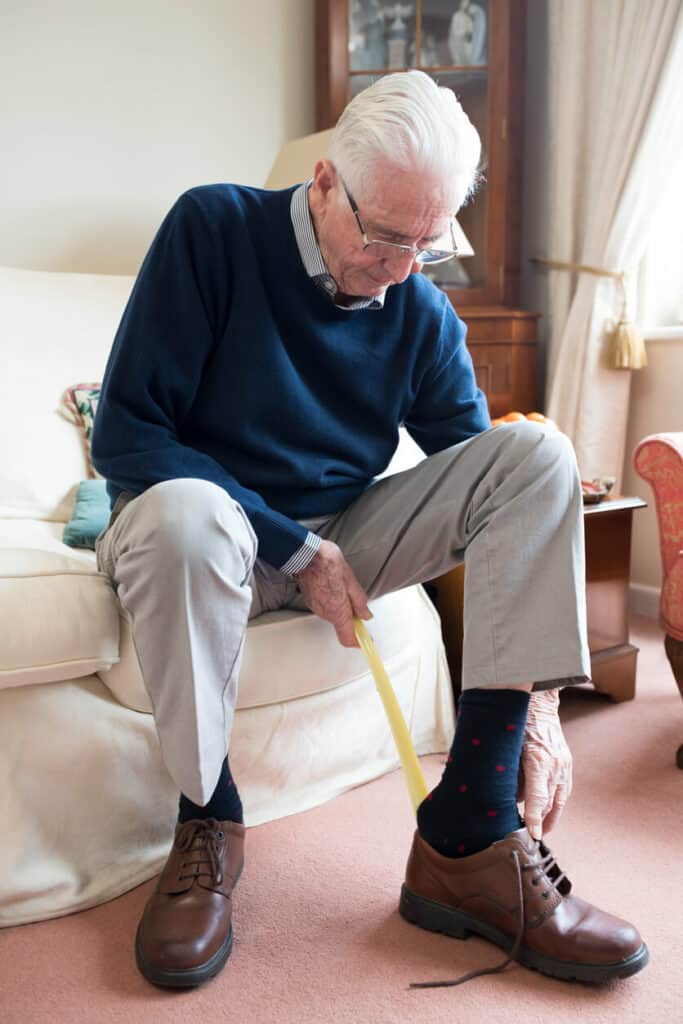
Amy’s Eden In-Home Care Is The Ally of Your Loved One’s Physical and Mental Health
Creating a safe and functional environment by eliminating slipping and falling opportunities, providing mobility aids, and optimizing lighting and temperature is one of the ways you can help your loved one with Parkinson’s disease cope with the mobility and cognitive impairment that comes with the condition.
Also, spending time with your senior doing physical activities and things that stimulate their mind and making bathing, dressing, and grooming easier for them can do wonders to inhibit their decay due to PD.
But we know that for a person with many responsibilities like you probably are, it can be quite challenging to put all these recommendations into practice.
We’re here for you on this. At Amy’s Eden, we can provide a level of care and support for your loved one with Parkinson’s disease matched only by yourself.
Our trained and loving professional caregivers will devote themselves to the needs of your senior in the comfort of their own home in Reno, Carson City, and all surrounding areas.

We have flexible plans that adapt to your schedule. Whether you need caregiver assistance for just a few hours for medication management, menu and meal preparation, and general home care help, or you require around-the-clock attention for your elderly loved one, you can count on us to be there for them.
Reach out to us to talk in detail about how we can best help your senior with Parkinson’s disease keep living with dignity and quality of life.

